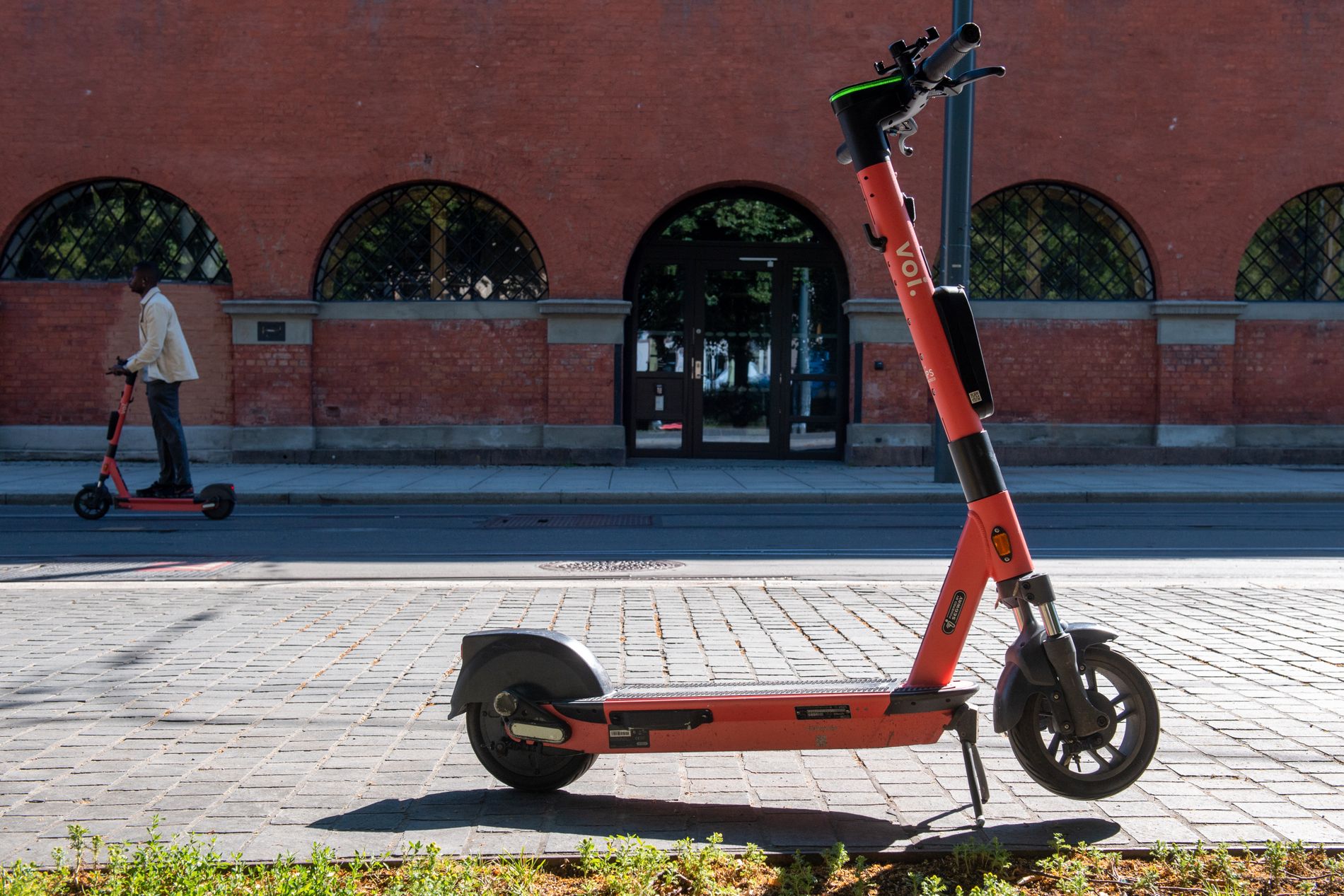A total of twelve different electric scooter players have been granted permission to rent out 667 small electric vehicles, each on public land in Oslo municipality.
–
The Urban Environment Agency made the decision on Saturday, and the permit is valid from and including 10 September 2021 until and including 31 March 2022.
Ayva, Bird, Dott, Tier, Ryde, ShareBike, Wind, Lime, Bolt, Voi, Bydue and CATS can rent small electric vehicles.
Taxicab AS is the only player that has been rejected. We Mobility AS withdrew its application, Oslo Municipality states.
Strong reduction
According to the plan, the number of electric scooters in Oslo was to be sharply reduced from the turn of the month, but this was postponed until 10 September as several of the players have taken the tightening to court.
Oslo has been the big city in Europe with the most scooters per head. In addition, many accidents related to electric scooters at night have been reported. In July, an average of 13 injured people were treated every single day after accidents with electric scooters.
The municipality has decided that a ceiling of a total of 8,000 electric scooters will be set. The actors who have gone to court have been critical both of the ceiling, and that no form of restriction on the number of actors is introduced.
Requires tender
Norwegian manager Christina Moe Gjerde in the scooter company Voi believes the city council over-regulates the electric scooter market.
She will not comment on the ongoing legal process, but emphasizes that the company will follow the regulations that apply at all times.
– The City Council’s over-regulation strikes a chord with a much-desired transport offer in Oslo. Users will soon have to deal with a jungle of apps, she says in an email to NTB.
As of today, there are nine players in the rental market. Now it is increasing to twelve, at the same time as there will be far fewer bicycles per player. The three largest players who have sued Oslo Municipality have all had over 5,000 electric scooters each.
– It will be more difficult to find an electric scooter. Experience from other cities shows that this type of regulation leads to dissatisfaction and a poorly organized offer. We want a tender competition, as the city council has also recently expressed, and which the city council in Oslo decided last year, says Moe Gjerde.
– A tender competition is also in line with what the Department of Transport Economics believes is the best solution. We hope and expect that Oslo Municipality will continue to work with this model until next season, she says.
Bolt: All right
On the other hand, Bolt, one of the smaller players, believes that the new regulation is completely easy to follow.
The company has had among the smallest fleets in Oslo since the start and also focuses on taxi services in the same app.
– Bolt has had one of the smallest fleets in Oslo since we launched in 2020, but we have nevertheless been prepared for this to be even smaller after the regulation. It is therefore no crisis for us that there will now be less than 1,000 scooters per operator, says Norwegian manager Jose Rei in Bolt.
He believes a regulation has been in demand for a long time, and says it comes as no surprise to anyone that Oslo had to be regulated.
– Fewer electric scooters means a “cleaner” Oslo, both in terms of less chaos, but also that there are opportunities for sustainable transport. We think it is great that there are more players who want to contribute to making Oslo a more sustainable city, says Rei.
–

